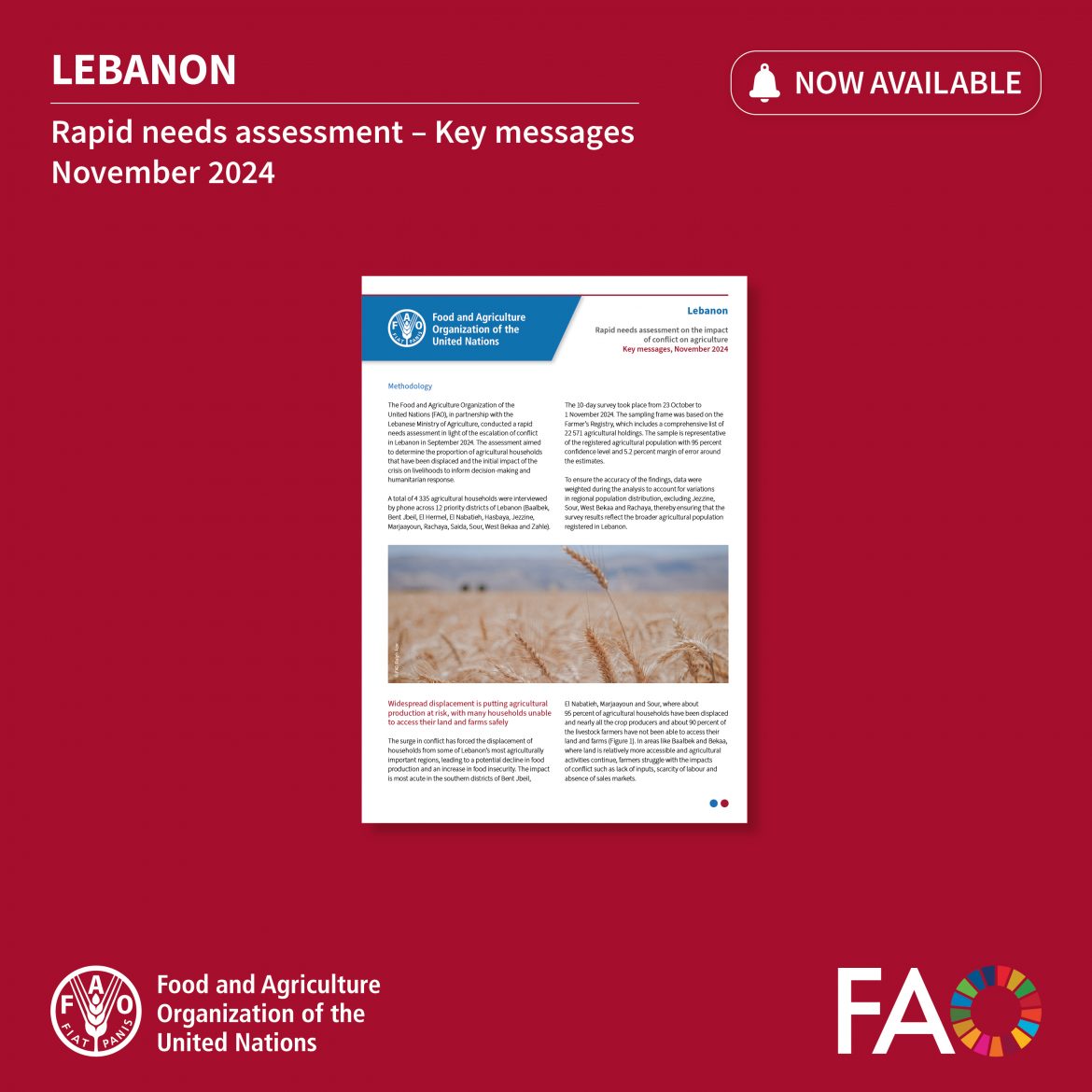Beirut, 19 December 2024: The Food and Agriculture Organization of the United Nations (FAO), in partnership with the Lebanese Ministry of Agriculture, conducted a rapid needs assessment in light of the escalation of conflict in Lebanon in September 2024. The assessment aimed to determine the proportion of agricultural households that have been displaced and the initial impact of the crisis on their livelihoods in order to inform decision-making and humanitarian response.
A total of 4 335 agricultural households were interviewed by phone across 12 priority districts of Lebanon (Baalbek, Bent Jbeil, El Hermel, El Nabatieh, Hasbaya, Jezzine, Marjaayoun, Rachaya, Saida, Sour, West Bekaa and Zahle). The 10-day survey took place from 23 October to 1 November 2024.
“Rural communities have exhausted their coping strategies. Restoring and protecting the livelihoods of smallholder farmers and livestock keepers in affected areas is crucial to enabling them to quickly restore their self-sufficiency”, said Veronica Quattrola, FAO Representative in Lebanon a.i. She added, “Timely delivery of emergency agricultural assistance is critical to maintain and increase local food production, in line with seasonal cycles “.
To read the findings of the assessment: Link
FAO also published a StoryMap focused on the impact of the ongoing conflict in Lebanon. The FAO Representation in Lebanon and the Data in Emergencies (DIEM) team examined satellite images to assess the potential impact of the escalation of conflict on agricultural land and livelihoods, and to identify the areas most affected. This assessment focused on the immediate response efforts, and subsequent geospatial and field assessment work in Lebanon.

